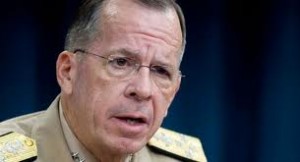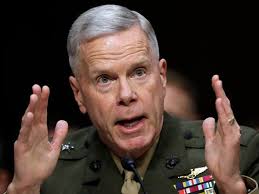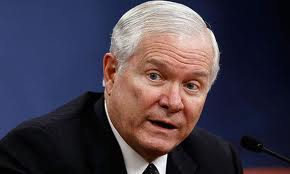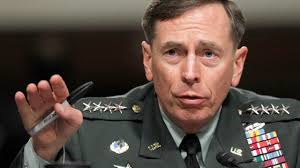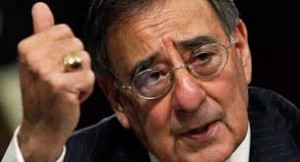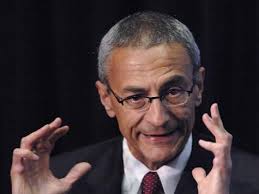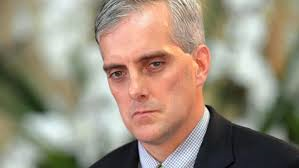In my long career in Air Force and aerospace industry public affairs I am proud to say that I was always loyal to the individuals in positions of authority. Fortunately, they never placed me a position that would have forced me to abandon my integrity to save my job.
Having started my career in the military, I became impressed with the workings of the chain of command and observed the upward mobility of some officers to general ranks while others faltered.
Later, as I became a political wonk, I often wondered how some Pentagon generals and White House appointees seemed willing to practice a kind of false loyalty; willing to set aside their better judgment, principles and ethics just to protect the stars on their shoulders or that coveted administration position.
In 2011, when President Obama made the purely political decision to repeal the 17-year military “Don’t ask, don’t tell” policy of President Clinton, does anyone believe that Admiral Mike Mullen, Chairman of the Joint Chiefs, and his service heads thought this was a good idea? Only Marine General James Amos had the courage to oppose the repeal, but in the end he had to salute smartly and say, ‘yes sir.’
Even Robert Gates, who I respected as a public servant, revealed in his book, Duty, that he was sandbagged by the president on “Don’t ask, Don’t tell,” but didn’t let his displeasure be known. He also wrote of the “suspicion and distrust of senior military officers” as he managed the relationship between the commander-in-chief and his military leaders.
Perhaps the most troubling recollection in Gates’ book was the Hillary Clinton’s admission that her opposition to the surge in Iraq, voiced during her campaign for the presidency, was political. And the president conceding vaguely that his opposition to the surge had also been political. To Gates, these admissions in his presence were “surprising and dismaying.”
That brings me to Gen. David Petraeus’ recent remark that Hillary Clinton would “make a tremendous president.” Is he suffering from amnesia? She may as well of accused him of lying during her 2007 questioning of him on what she referred to as our “failed policy” in Iraq. “I think the reports you provide us really require a willing suspension of disbelief.” And did he not hear about her admission regarding the surge being purely political?
But the general’s gratuitous comments continued. “Like a lot of great leaders, her most impressive qualities were most visible during tough times. In the wake of the Benghazi attacks, for example, she was extraordinarily resolute, determined and controlled.” What? Has he forgotten how she ignored five months of terrorist warnings in Benghazi; how she perpetuated the anti-Muslim video as the cause of the attack; how she exclaimed in testimony “what difference does it make;” and how she went silent on bringing the attackers to justice?
Civilian appointees also seem to find their true beliefs after leaving office. Leon Panetta, former defense secretary under Obama, appearing at a Southern Methodist University forum last September, commented on the president drawing a red line on Syria saying, “Once the president came to that conclusion, then he should have directed limited action, going after Assad, to make very clear to the world that when we draw a line and we give our word … we back it up.”
Michael J. Morell, former deputy director of the CIA, also expressed skepticism about the negotiations giving Russia the lead in Syria after leaving office. More recently he was identified as the person behind the rewrite of the Benghazi statement eventually used by Susan Rice on five Sunday TV news programs.
Late last year, the president brought in strategist John Podesta to “help” Chief of Staff Denis McDonough. What resides in the character of a person, who is apparently so intellectually dishonest as to accept this decision, as McDonough did? In business, McDonough would simply be replaced.
While researching General Petraeus’ remarks about Hillary Clinton, I came across a delightful blog, ricochet, and a piece written by Dave Carter. Although we have not met, it seems he and I had similar Air Force experiences with “front row seats by virtue of our jobs.” I didn’t expect to find someone else who feels as I do about integrity and true loyalty.
Carter describes how he viewed the grooming of some officers for leadership was the polite way of saying that those most capable of kissing the boss’ derriere are, counterintuitively, most likely to be promoted to positions of leadership.
“They rationalize it by telling themselves that once they reach the pinnacle of authority, they will magically regain their fortitude and integrity, collect what pieces of their soul remain and ‘do the right thing,’” writes Carter. “The trouble is, as they continue to trade their integrity along the way, they condition themselves so that when they reach the lofty heights, they’ve nothing left save the political acumen that ‘brung them to the dance.”
In addition to Petraeus, Carter was particularly harsh regarding Gates, who he said didn’t feel compelled to do anything about the incompetence and mismanagement at the highest levels he spoke of once he was in a position to actually do something, “preferring to wait until reaching the safe harbor of retirement before shining a spotlight.”
Those of us who entered the military service taking an oath to defend the Constitution ought not take it lightly, Carter suggests, “nor should the corresponding faith that Americans invest in their military leaders to place the best interests of those they lead over their own career aspirations ever be broken.”
“When a retired four-star general lends his endorsement to a public official whose incompetence led to the murder of Americans on foreign soil and then lied about it only to later ask, incredulously, what difference does it make, something has gone terribly wrong.” -Dave Carter


